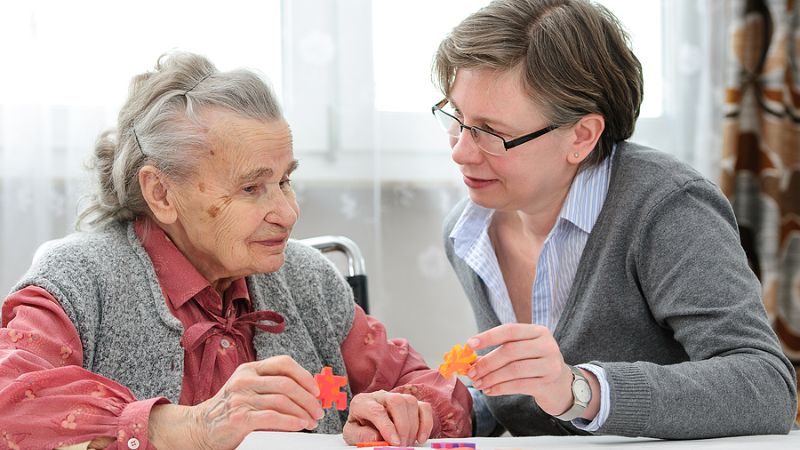Understanding when it is time to consider hospice care for a loved one with dementia can be a challenging and emotional decision for families. Dementia, including Alzheimer’s disease, Lewy body dementia, and other memory care conditions, entails a progressive decline in brain health, impacting daily life and creating substantial emotional and physical demands on both patients and family caregivers.
While the progression and symptoms differ from one individual to another, certain signs can indicate that your loved one’s disease has reached a stage where dementia hospice care is the most compassionate option. Recognizing these end-of-life signs can ensure your loved one receives the care planning and supportive care they need during their final stages.
Recognizing Signs Of Advancing Dementia
Understanding when dementia has progressed to a stage where hospice care is necessary often involves looking for specific terminal illness signs. Often, past medical treatment and care planning efforts will have focused on improving quality of life and managing symptoms. However, when a loved one’s health begins to sharply decline, it may be time to shift focus to compassionate care and comfort care.
Indicative Symptoms of Dementia’s Progression
Several symptoms may signal the progression toward advanced dementia and hospice eligibility.
- Severe memory loss stages, impacting daily living significantly.
- Rapid decline in physical abilities, including difficulty in swallowing or walking.
- Increased need for assistance in daily life tasks, such as grooming and toileting.
- Frequent or severe infections, as well as unexplained medical complications.
- Significant weight loss despite continuous attempts to maintain nutritional intake.
The Importance Of Hospice Eligibility Criteria
Hospice care for Alzheimer’s and dementia patients focuses on providing emotional support, palliative care, and comfort care. A patient’s eligibility typically involves determining that they have a life-limiting illness and likely have six months or less to live if the disease runs its usual course.
Using scales like the FAST scale in healthcare decisions can assist healthcare providers in assessing the stage and needs of the patient, contributing to more informed family conversations.
The Role Of Palliative & Supportive Care
As dementia progresses, the shift from cure-oriented medical treatment to palliative and supportive care is crucial.
- Patient dignity and enhancing the quality of life.
- Managing symptoms and providing comfort.
- Offering family caregiver support and guidance.
- Ensuring that the medical needs of the patient are met holistically at home.
Evaluating When Hospice Care Becomes Necessary
Assessing when hospice care becomes part of the care transition involves understanding more than just physical decline. Evaluating aspects of daily life and the emotional health of both the patient and family caregivers is critical. Chronic advanced dementia can result in periods of increased agitation, confusion, and distress, deeply affecting caregivers experiencing the journey of their aging parents.
Emotional Considerations In End-Of-Life Decisions
Decision-making at the end of a loved one’s life is fraught with challenges. Nonetheless, identifying warning signs and openly discussing thoughts around hospice options is crucial. Families often find that preparatory discussions on advanced care plans and healthcare decisions provide clarity.
Comparing Hospice To Assisted Living & Nursing Home Care
Hospice care is unique in its approach compared to living facilities such as assisted living or nursing homes. While assisted living focuses on enhancing daily life in a communal setting, hospice provides in-home comfort care, directly addressing the specific emotional and medical needs of dementia patients.
Living facilities can play a role in the continuum of care, especially when a diagnosis of dementia is made early. However, as dementia advances, allowing a patient to remain in their familiar surroundings with personalized attention can make significant differences in comfort and reception of care.
Benefits Of Hospice Care For Dementia Patients
The hospice care model provides numerous advantages for dementia patients.
- Enhancing comfort and reducing distressing symptoms.
- Providing continuous support for caregivers, including bereavement counseling.
- Facilitating necessary health care and emotional resources for caregivers.
- Preserving autonomy and dignity through custom care plans.
Guidance In Developing An Advance Care Plan
Families benefit from having an organized and informed approach to end-of-life care. Creating an advance care plan specific to dementia-related needs ensures that wishes around care services are documented and adhered to, providing peace of mind to all involved.
Healthcare providers are instrumental in guiding families through recognizing decline and planning future care. Substituted judgment involves making decisions on behalf of a person who can no longer communicate their wishes, based on what they would have chosen if they were able. Making these decisions thoughtfully and serving as intermediaries during the transition phase can greatly reduce both logistical complexities and the emotional strain on caregivers and families.
Amore Hospice Care Is Here To Support Your Family
With Amore Hospice Care in Las Vegas, NV, families receive a partner in their caregiving journey. From navigating complex healthcare decisions to providing in-home palliative and compassionate care, our team’s commitment is to ensure that every patient experiences love and dignity during their life’s concluding chapter. Reach out to us today to explore how we can support you and your loved one during this tender stage of life.

